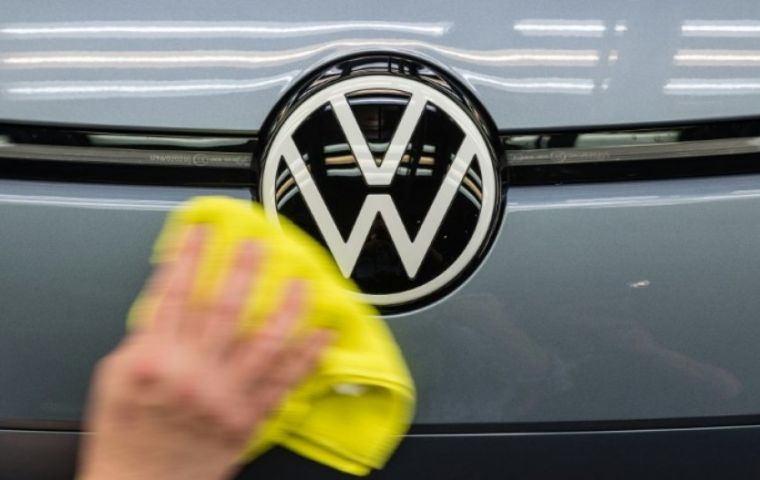MercoPress. South Atlantic News Agency
Volkswagen goes electric and ends making internal combustion engines in 2035
 The phase-out timeline affects Volkswagen-brand cars, while plans are also in the works for other brands owned by the Volkswagen Group.
The phase-out timeline affects Volkswagen-brand cars, while plans are also in the works for other brands owned by the Volkswagen Group. Germany's Volkswagen will no longer make cars with internal combustion engines in Europe by 2035, a board member said. The announcement comes as carmakers in Europe face mounting pressure to combat climate change and curb emissions under new EU regulations
Klaus Zellmer, a member of the board for sales and marketing at Volkswagen's passenger cars brand, revealed the timeline in an interview.
“In Europe, we'll be getting out of the combustion engine vehicle business between 2033 and 2035,” Zellmer told the Münchner Merkur newspaper.
The phase-out timeline affects Volkswagen-brand cars, while plans are also in the works for other brands owned by the Volkswagen Group.
Zellmer told the paper that the phase out will happen “a little later in the United States and China” and that it will take even longer in Africa and South America “due to the lack of political framework conditions and infrastructure.”
Although Volkswagen is looking to boost its electric vehicle offering, the company will continue to invest in combustion engine technology for now, Zellmer said, adding that diesel vehicles remain in high demand.
The comments follow a similar announcement from Audi, which is a subsidiary of Volkswagen. Audi said it planned to stop producing cars with combustion engines in 2033.
US carmaker Ford and Sweden's Volvo announced plans to go all-electric in Europe starting in 2030. Public outcry over climate change and new environmental regulations in Europe have prompted the shift to electric vehicles.
Volkswagen, in particular, is looking to rebuild its reputation following the “Dieselgate” scandal, which cost the company billions.
In 2015, the German car giant admitted to illegally fitting millions of diesel vehicles around the world with emissions-cheating software — prompting a slew of legal cases against the company and former executives.




Top Comments
Disclaimer & comment rulesCommenting for this story is now closed.
If you have a Facebook account, become a fan and comment on our Facebook Page!